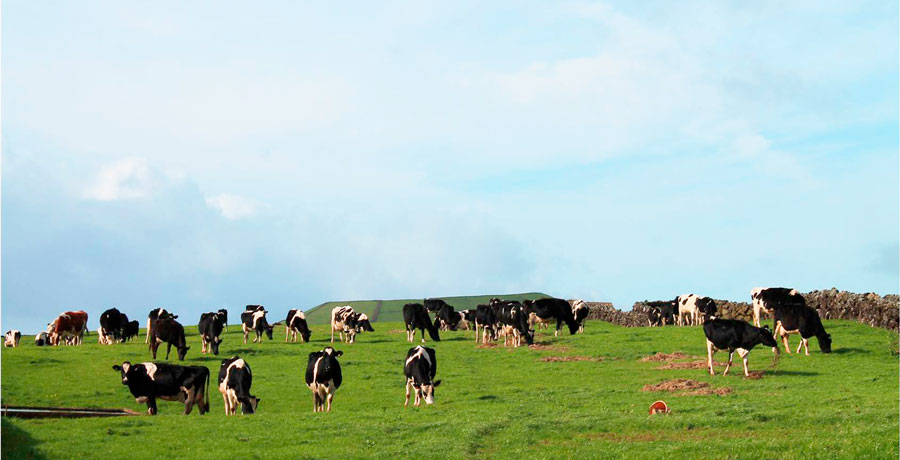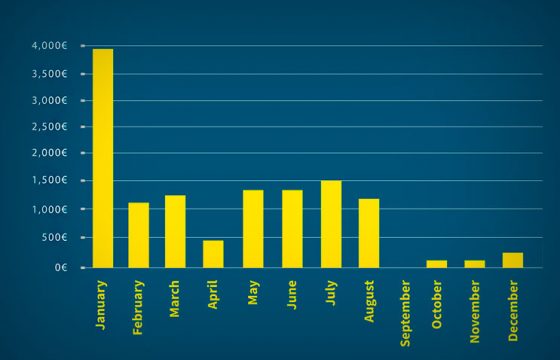Milk quality: What are the main challenges in Portugal?
Deolinda Silva is a vet who has been a board member of the Portuguese Udder Health Council –Conselho Português de Saúde do Úbere– for over 4 years. She combines this activity with her professional life in Technical Services in the Ruminants area at HIPRA. We asked her some questions about milk quality and what prompted her to create this association with other vets.
Interview with Deolinda Silva, PORTUGAL
Deolinda Silva is HIPRA’s Technical Services for Ruminants in Portugal.

“The aim of offering a distinctive service plays an important role in the growing interest in milk quality. ”
1- What prompted you to become part of an organization whose goal is to help to improve milk quality in your country/ worldwide?
HIPRA is a company with an innovative offer, with a very clear vision, which is to be the reference in prevention in animal health. As a vet, I believe in that vision, the prevention and control of diseases is the present and future of animal health.
Also, milk is an essential food all over the world, and the production of quality cows’ milk is a key factor in the economic efficiency and long-term sustainability of a dairy farm.
It is with great professional and personal satisfaction that I am part of a project that contributes in numerous ways (diagnostic services, technical services, vaccines to protect against several major mastitis pathogens, specific training, etc…), with a very positive impact on improvement of milk quality both in Portugal and also all over the world, meeting the needs of veterinary practitioners and farmers.
2- Have you seen an increase in the number of vets or farmers interested in milk quality in recent years?
Yes, I have seen a clear increase in awareness amongst veterinary practitioners and farmers of the need to improve milk quality. In the developed economies, the quality of the products – especially agri-food sector products – plays a very important role. And because of that, this awareness of quality is a strategic topic and a key topic for competitiveness in companies.
The aim of offering a distinctive service, that meets the demand from farmers together with their need to optimize their production system, plays an important role in the growing interest in milk quality.
3- In your opinion, what are the main pillars (management, mastitis vaccination, milking hygiene etc.) for the achievement of good milk quality in the mind of the farmer or vet?
In my opinion, the udder health programmes on farms have 4 main pillars that define the strategies for mastitis control:
1. Environment -where you can include animal welfare-
2. Milking routine
3. Milking machine
4. Cow – here the immune system is included, also mastitis epidemiology
Vaccination against bovine mastitis should also be included in this final point, as it plays a major role in controlling the main mastitis pathogens.
4- In your experience, do you think that farmers or vets are aware of the importance of data recording (clinical mastitis/ severity grades etc)?
In a milk quality programme, monitoring of results is key and keeping reliable data records is fundamental for its success.
The recorded data on clinical mastitis (number of cases and also severity) can indicate higher risk periods, provide a guide to the prediction of future results, and outline an adequate udder health programme.
They are also the best indicators to achieve the efficacy and return on investment of vaccination programmes against environmental pathogens (by monitoring the clinical signs) and also against contagious pathogens (by determining the incidence and prevalence of Stahp. aureus, for example).
In my experience, it is necessary to keep systematic records on dairy farms, taking into account clinical mastitis (incidence and severity grades) as well as the treatments given.
5- In which direction do you think milk quality should go in your country?
Currently, the dairy sector is facing many challenges, economically, politically and socially. Some of these involve meeting the demand for quality products by consumers, the dairy industry and official organizations, reduction of antibiotic use, the need to increase economic efficiency, etc….
In my opinion, the way to survive now, is to optimize milk production to the maximum in order to guarantee the future of farms.
To achieve this goal, the implementation of global prevention programmes, including milk quality services -based on the 4 pillars and incorporating vaccination with STARTVAC® and UBAC® when required-, will be essential to ensure the achievement of excellence in milk quality.



